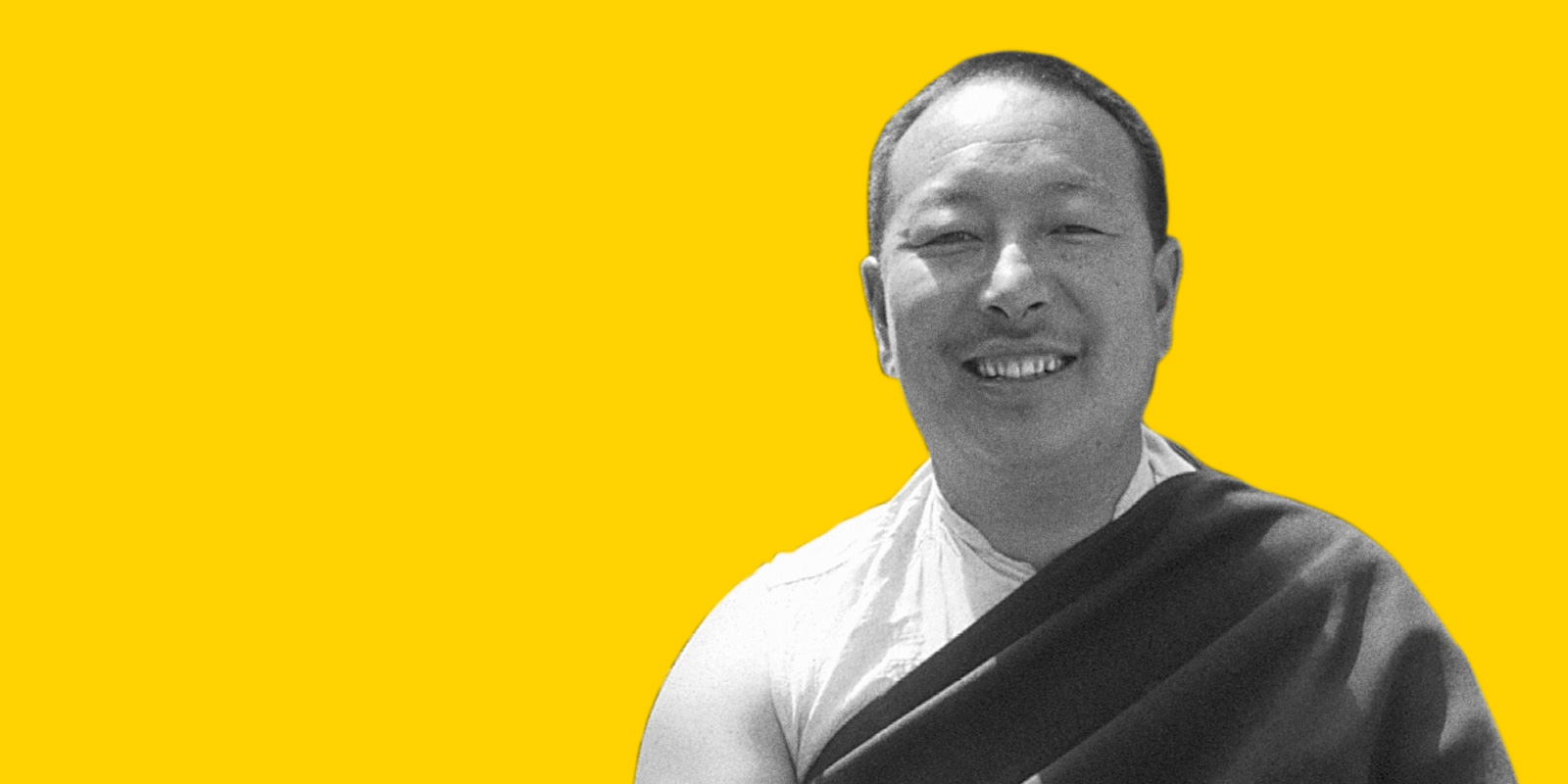Bangri Chongtrul Rinpoche is a community leader serving a 19-year prison term for “attempting to split the country and destroy national unity.” He was born in what is now Nangchen County, Kyegudo Tibet Autonomous Prefecture, Qinghai Province.
In 1996, he and his wife Nyima Choedron founded Gyatso orphanage in Lhasa, designed to help some of the city’s most deprived children. At its peak, the orphanage was home to 60 children and received some funding from overseas charities. The orphans were given education in Tibetan language, Chinese language, English language and mathematics. Bangri Rinpoche and Nyima Choedron ran the orphanage and were well respected for their service to the community.
In August 1999, Tashi Tsering, a Tibetan worker involved in a construction project at the orphanage, was arrested for trying to raise a Tibetan flag and allegedly attempting to explode a bomb in the Potala Square in Lhasa, during the National Minority Games.
Shortly after this incident, Chinese authorities arrested a large number of people connected to the orphanage. Bangri Rinpoche and Nyima Choedron were amongst those arrested and were charged with “attempting to split the country”. Twelve other Tibetans, including Bangri Rinpoche’s relatives, were also sentenced.
The orphanage itself was declared an “illegal organization” and closed, leaving the children, aged between two months and 12 years, without a home.
In prison Bangri Rinpoche was subjected to severe torture. For five days he was interrogated day and night. He was held handcuffed with one hand behind his shoulder and the other around his waist. His legs were fettered, he was hooded and forced to kneel on a low stool.
Court documents show that Bangri Rinpoche denied the charges against him, which included conspiring with Tashi Tsering for the actions in the Potala Square and links to “splittist” foreign organizations. He was sentenced to life in prison, later commuted to a fixed term of 19 years, and then reduced by one year. Nyima Choedron was initially sentenced to 10 years’ imprisonment, later reduced to seven years. She was released in 2006. Bangri Rinpoche is not due to be released until 2021.
There are parallels between the case of Bangri Rinpoche and that of revered Tibetan Buddhist teacher and community leader Tenzin Delek Rinpoche. Both are respected figures in their local communities, providing education, welfare and housing for those in need. Both cases appear to reflect an effort by the Chinese government to single out for severe punishment individual leaders, who are promoting and preserving Tibetan language, culture and religion. But ultimately, both cases show the continued defiance and determination of Tibetans inside Tibet to empower future generations.


